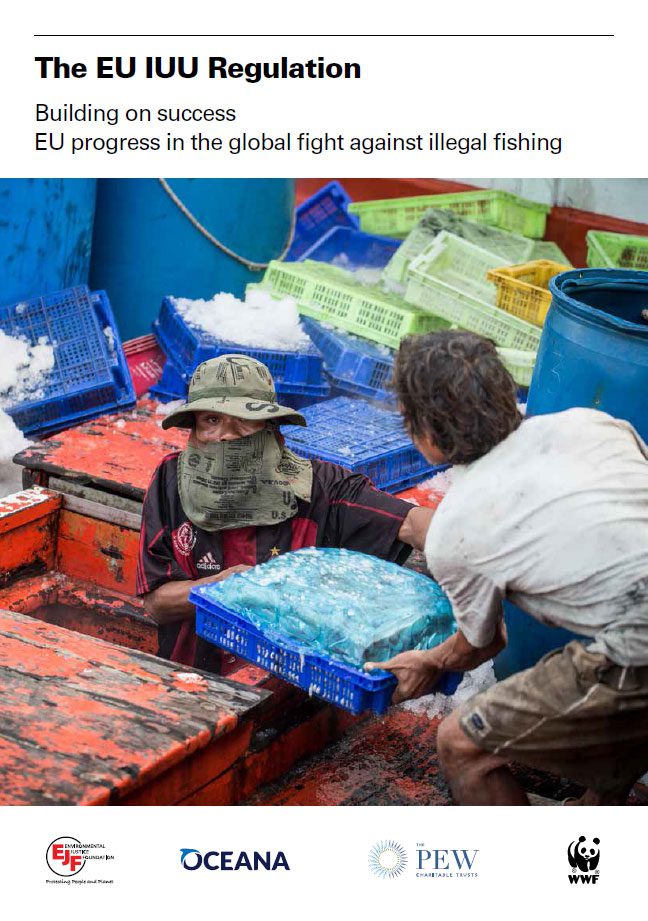Report | February, 2016
The EU IUU Regulation
IUU fishing is one of the main impediments to the achievement of legal and sustainable world fisheries at a time of mounting threats to marine biodiversity and food security.
IUU fishing contributes to overexploitation of fish stocks and undermines the recovery of fish populations and ecosystems. It damages the marine environment, distorts competition and puts those fishers who operate legally at a disadvantage. It also adversely affects the economic and social well-being of fishing communities, especially in developing countries3 where coastal communities may rely heavily on fish resources for food and income.
IUU fishing can occur in any fishery, from shallow coastal or inland waters to deep remote oceans. It is a particular issue in countries where fisheries management is poorly developed, or where there are limited resources to enforce regulations through key tools such as landing controls, vessel inspections and patrols at sea.
Why and how IUU occurs
The main driver for IUU fishing is economic benefit. A vessel that is fishing illegally is able to maximise profits by reducing operating costs in terms of licensing and the requirements that come with it (e.g. compliance with tax and labour laws, use of vessel monitoring systems and correct documentation). IUU fishers may ignore quota levels, enter closed fishing areas, catch undersized fish or target high-value rare or even endangered species, and use banned fishing practices or gear. They often target areas with weak national or international controls to illegally harvest marine resources.




